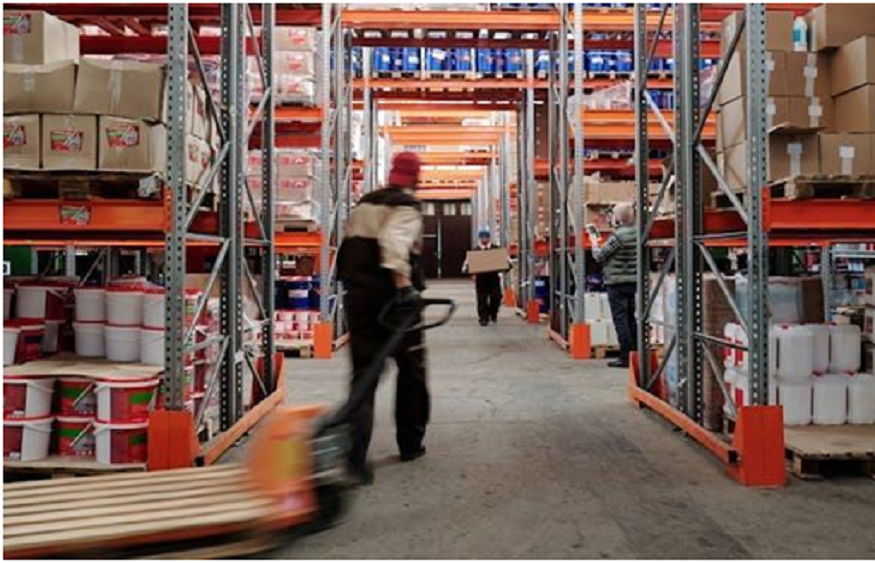Integrated Logistics for E-commerce: Meeting the Demands of Fast-Paced Retail

The speed and efficiency of delivery can make or break a business. As consumer expectations for rapid fulfillment grow, e-commerce companies in India face increasing pressure to optimize their logistics operations. This is where integrated logistics comes into play, offering a seamless solution that merges various supply chain functions into a cohesive and efficient system.
The Importance of Integrated Logistics in E-commerce
Integrated logistics has become the backbone of modern e-commerce, enabling companies to manage their supply chains more efficiently. It involves the unification of warehousing, transportation, inventory management, and order fulfillment processes, allowing businesses to respond quickly to market demands. For e-commerce companies in India, where the market is highly competitive and customer expectations are high, integrated logistics is no longer a luxury but a necessity.
According to a report by the India Brand Equity Foundation (IBEF), the Indian e-commerce market is expected to grow to US$ 350 billion by 2030. This rapid expansion has created a pressing need for robust logistics solutions that can keep pace with the industry’s growth. Integrated warehousing distribution systems, which combine storage and distribution under one roof, are increasingly being adopted to meet this demand. These systems help reduce transit times, minimize costs, and improve inventory management, ultimately leading to better customer satisfaction.
Meeting the Demands of Fast-Paced Retail
The rise of fast-paced retail has redefined how e-commerce companies in India approach logistics. Consumers now expect same-day or next-day delivery, putting immense pressure on businesses to streamline their supply chains. To meet these demands, companies are turning to integrated supply chain solutions that offer end-to-end visibility and control.
An integrated supply chain allows e-commerce companies to synchronize their operations from procurement to delivery. This synchronization is crucial in a market where delays and inefficiencies can lead to lost sales and dissatisfied customers. By integrating their logistics operations, companies can optimize inventory levels, reduce lead times, and ensure that products are delivered to customers as quickly as possible.
The Role of Technology in Integrated Logistics
Technology plays a pivotal role in the success of integrated logistics. Advanced software solutions, such as warehouse management systems (WMS) and transportation management systems (TMS), are essential for managing the complexities of an integrated supply chain. These technologies provide real-time data on inventory levels, order status, and delivery routes, enabling companies to make informed decisions and respond quickly to any disruptions.
For instance, the use of automation in warehousing, such as robotic picking and packing, has significantly reduced the time it takes to process orders. In addition, real-time tracking and predictive analytics allow e-commerce companies to anticipate demand fluctuations and adjust their logistics strategies accordingly. As a result, integrated warehousing distribution has become more efficient, reducing the risk of stockouts and overstocking.
Benefits of Integrated Logistics for E-commerce Companies
The benefits of integrated logistics for e-commerce companies in India are manifold. By consolidating their supply chain functions, businesses can achieve greater efficiency, reduce operational costs, and enhance their competitive advantage. Key benefits include:
Improved Efficiency: Integrated logistics eliminates silos within the supply chain, allowing for better coordination between different functions. This helps with some of the fastest order processing and delivery times.
Cost Savings: By optimizing inventory levels and reducing transit times, integrated logistics can lead to significant cost savings. Companies can effectively work with third-party logistics providers, further lowering expenses.
Enhanced Customer Satisfaction: Faster delivery times and accurate order fulfillment are critical to customer satisfaction. Integrated logistics ensures that customers receive their orders on time, leading to higher levels of repeat business and customer loyalty.
Conclusion
In the fast-paced world of e-commerce, integrated logistics is essential for meeting the demands of modern retail. As e-commerce companies in India continue to grow, the adoption of integrated warehousing distribution and integrated supply chain solutions will become increasingly important. By leveraging technology and streamlining their logistics operations, businesses can enhance their efficiency, reduce costs, and, most importantly, deliver a superior customer experience.






